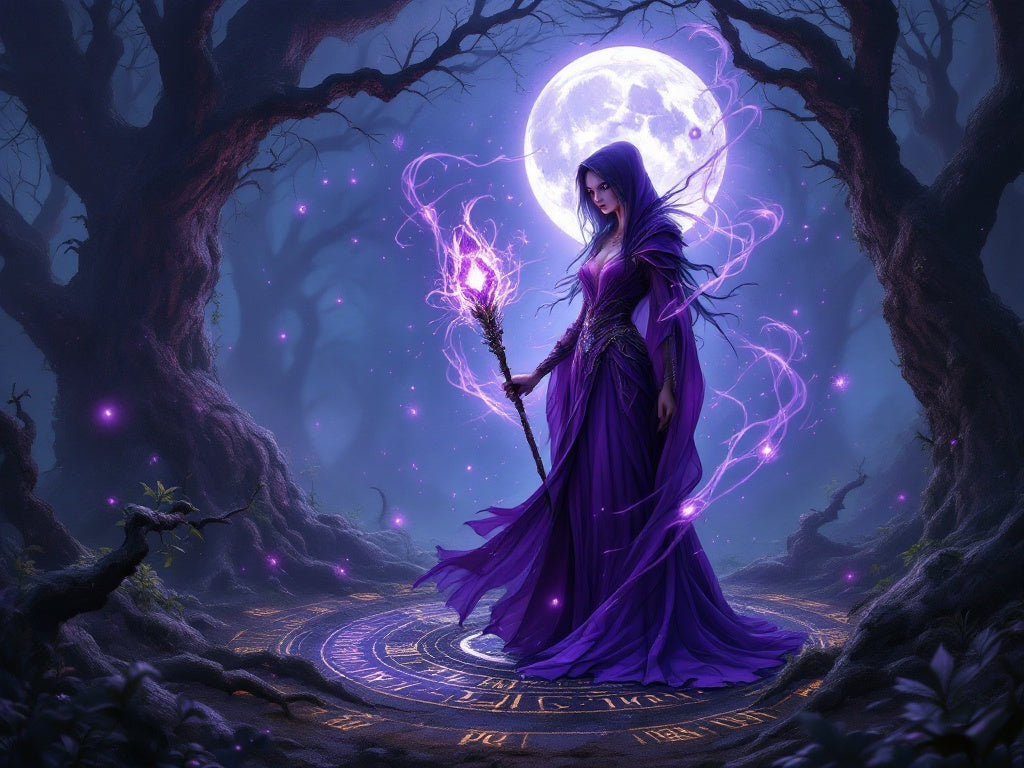Growing up, I had a secret. A thrilling, magical secret that I whispered to my closest friends, the secret that made their eyes widen with wonder and disbelief. I told them my family were witches.
The broomstick-riding, cackling-over-cauldron witches Hollywood loves to portray, but also something more mysterious, more grounded in the world. My imagination painted my family as keepers of ancient knowledge, wielders of unseen forces, and protectors of the magical balance. Of course, it wasn’t true—but it was fun to pretend.
I didn’t just tell the story; I lived it. My brother and I spent countless summer nights under the stars, pretending we were witches ourselves. We’d sneak out after dark, the air warm and heavy with the scent of blooming flowers, and dance barefoot in the backyard. The rustle of leaves was the whisper of the forest spirits. We cast spells with sticks that became wands and murmured incantations we made up on the spot. To us, magic wasn’t just a story—it was a feeling, a way of seeing the world.
Little did I know those childhood games would follow me into adulthood, shaping who I am and what I do. Today, I write fantasy fiction, weaving worlds where magic is real, and witches are more than a childhood fantasy. But before I get into how I got here, let me take you back to those early days of make-believe.
### The Magic of Pretending
As kids, my brother and I had boundless imaginations. We didn’t just play; we created entire worlds. Our backyard became an enchanted forest, our living room a witch’s lair. We didn’t need expensive toys or elaborate props—just our imaginations and a willingness to believe.
I remember one summer evening in particular. The sun had just set, and the sky was deep indigo, the first stars beginning to twinkle. My brother and I tiptoed outside, careful not to wake our parents. Armed with flashlights and an old book we pretended was a grimoire, we declared ourselves the guardians of the magical realm.
We danced in circles, our shadows flickering against the fence, and chanted nonsense words we insisted were ancient spells. We believed we could summon the wind, and when a breeze stirred the trees, we were convinced it was our doing. In those moments, we weren’t just kids playing a game—we were witches, powerful and mysterious.
Looking back, I realize how much those nights meant to me. They were a time of freedom and creativity, a chance to step outside the ordinary and into something extraordinary. Even as I grew older and the pretend games faded, the sense of wonder they inspired stayed with me.
### Growing Up and Letting Go
As I entered my teenage years, the magic of childhood began to fade. The world became more complicated, and the pressures of school, friends, and growing up left little room for make-believe. I stopped telling my friends my family were witches, and my brother and I stopped dancing in the backyard.
But even as I let go of those childhood games, a part of me held onto the magic. I found it in books, losing myself in stories of wizards, dragons, and enchanted lands. I started writing my novels, filling notebooks with tales of adventure and wonder. Writing became my new way of pretending and keeping the magic alive.
At first, it was just a hobby, something I did for fun. But the more I wrote, the more I realized how much it meant. Writing wasn’t just a way to escape—it was a way to create, to share the magic I’d felt as a child with others.
### Finding My Voice as a Writer
I drew heavily from my childhood experiences when I started writing fantasy fiction. The worlds I created were filled with the same sense of wonder and possibility I’d felt during those summer nights in the backyard. My characters were witches and wizards, guardians of ancient secrets and wielders of incredible power.
But more than that, my stories were about the magic of believing—believing in yourself, others, and the possibility of something greater. They were about the power of imagination and the importance of holding onto a sense of wonder, no matter how old you are.
Writing fantasy fiction has been a journey of self-discovery. It’s helped me reconnect with the magic of my childhood and share it with others. It’s also taught me to embrace my unique voice as a writer, to draw from my own experiences and let them shape my stories.
### The Magic Lives On
Today, I’m proud to call myself a fantasy author. My books are filled with magic and adventure, inspired by the games my brother and I played as kids. But more than that, they celebrate the magic we all carry—the magic of imagination, creativity, and belief.
Whenever I write, I remember those summer nights in the backyard. I remember the feeling of the grass beneath my feet, the sound of the wind in the trees, and the thrill of pretending to be something extraordinary. That’s the feeling I try to capture in my stories, which I hope to share with my readers.
### A Message to Dreamers
If there’s one thing I’ve learned from my journey, it’s that the magic of childhood doesn’t have to fade. It might change form, but it’s always there, waiting for you to rediscover it. You can keep the magic alive through writing, art, music, or simply dreaming.
So, to all the dreamers out there, never stop believing. Never stop creating. And never stop chasing the magic.
Because sometimes, the stories we tell ourselves as kids—the ones about witches and spells, dancing in the moonlight, and summoning the wind—can lead us to something real and wonderful. They can lead us to who we’re meant to be.

